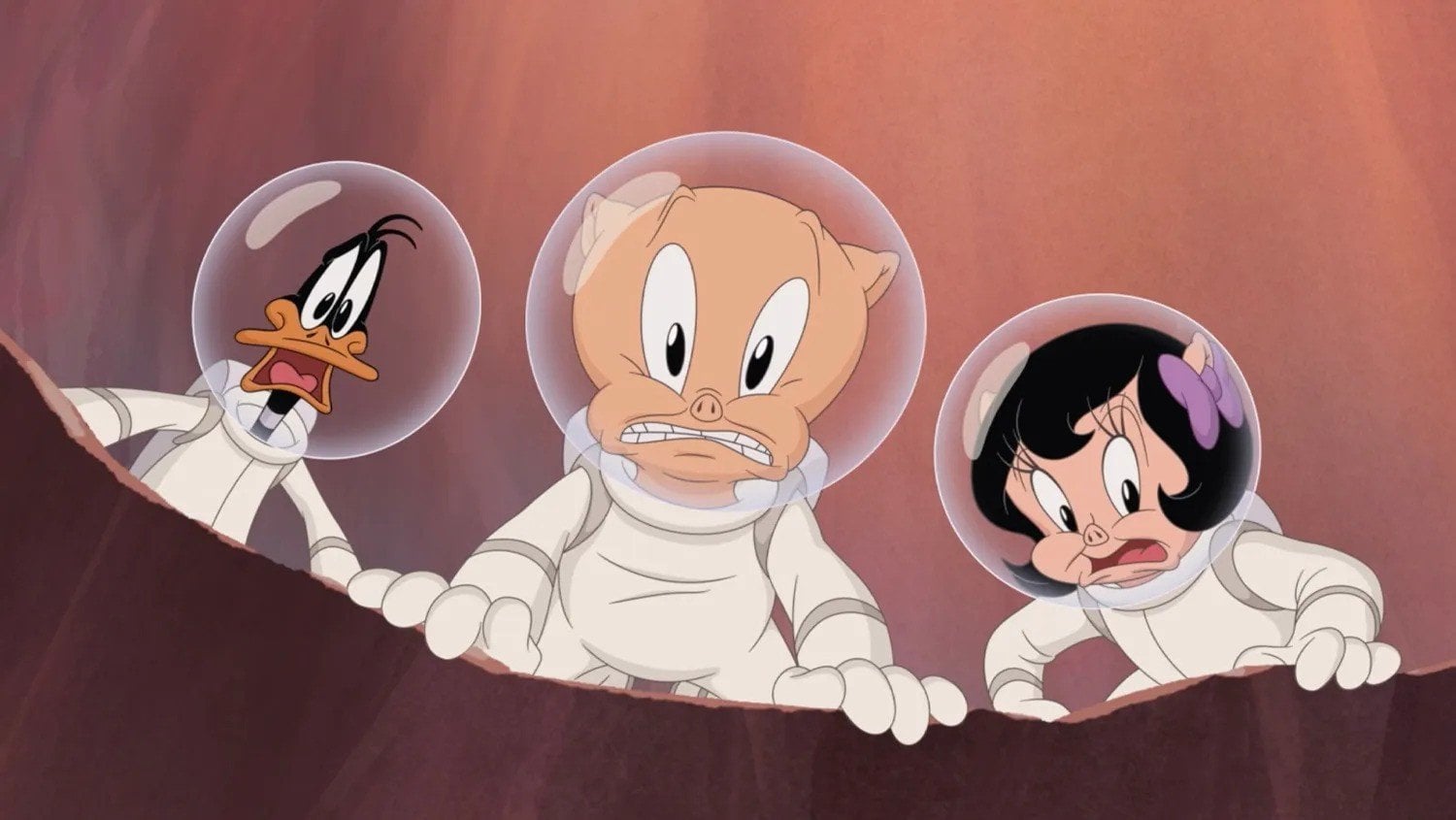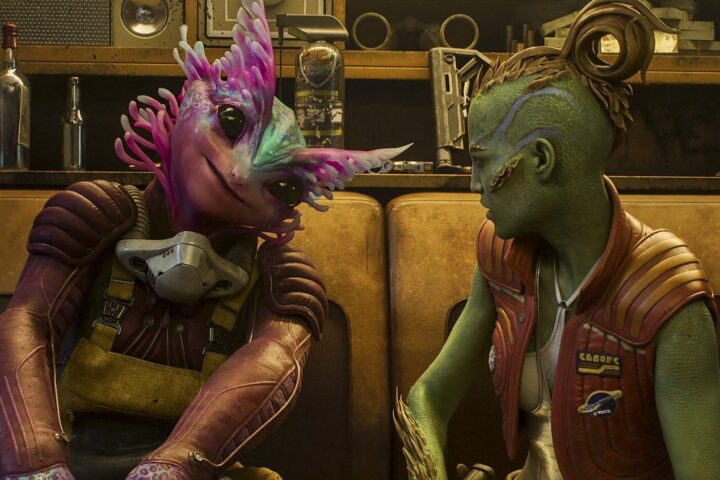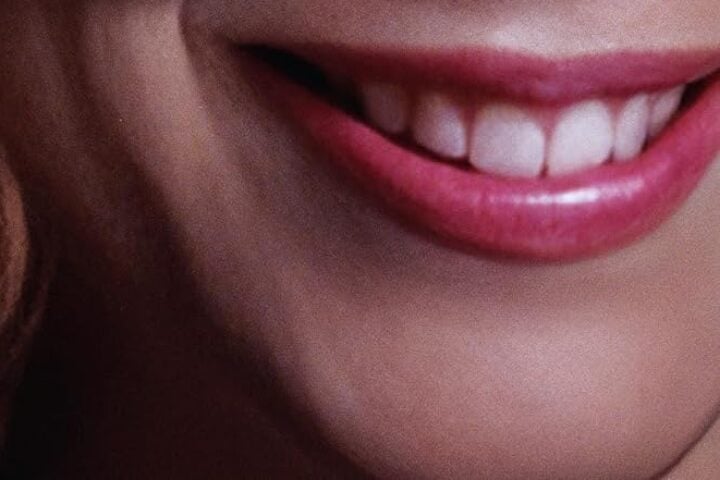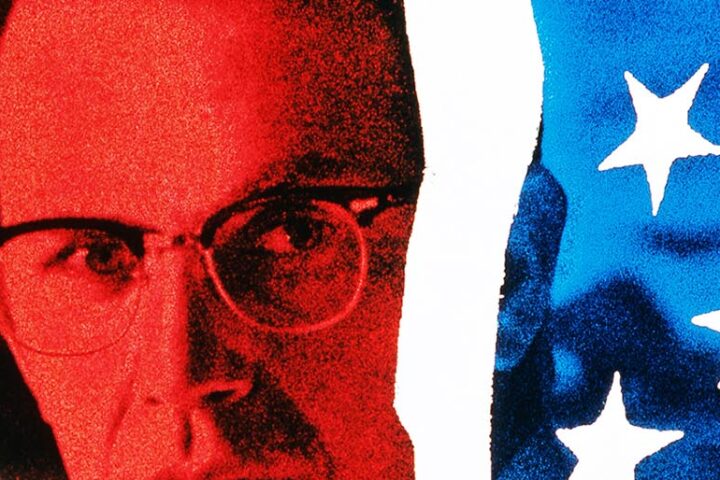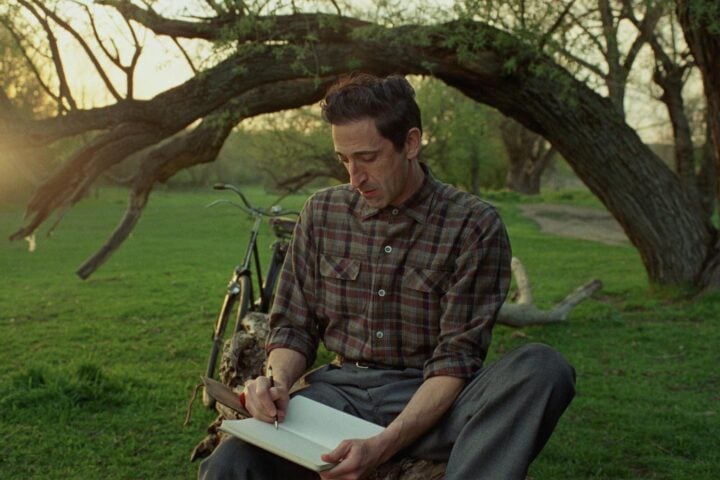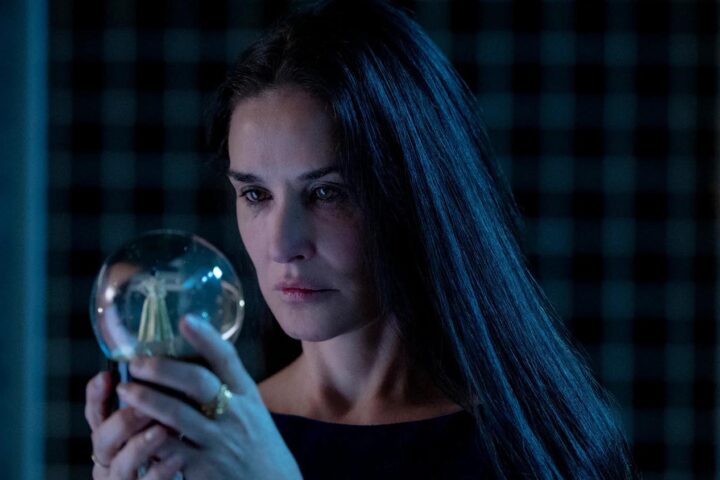Pete Browngardt’s delightful The Day the Earth Blew Up: A Looney Tunes Movie, a love letter to Warner Bros.’s iconic Looney Tunes franchise, knows the history of its source of inspiration so well that it has the confidence to work without the safety net of Bugs Bunny. Here we get a rare modern-day spotlight for Porky Pig and Daffy Duck (both voiced by Eric Bauza) that leans into their earliest character traits: Porky as the hapless but fundamentally decent, even good-natured, average joe, and Daffy as an uncontrollable chaos god no longer bound by fate to be humiliated by his nemesis. This Daffy can do bad all by himself.
As far back as 1943’s “Porky’s Pig Feat,” Porky and Daffy have shared a chemistry premised on the tension between the former’s dignity and the latter’s penchant for anarchy. That dynamic is brought to bear here in a story that imagines them as lifelong companions raised from infancy by a human farmer who leaves them a home that they rapidly let go to ruin in adulthood.
Amid the existing sheets of mold and dust comes a new wrinkle in the house’s decay when a piece of alien technology crashes through their roof. In short order, it’s revealed that said object contains a mind control technology that soon finds its way into the bubble gum factory where Daffy and Porky take menial jobs to save their house. As more and more people succumb to the zombie gum produced within, it falls to our hapless heroes to save the world.
This is dramatically simplifying a plot that is much more convoluted than one expects from such an elementally direct franchise as Looney Tunes, but The Day the Earth Blew Up foregrounds this complexity as a running gag. The mind control virus is unleashed by a megalomaniacal alien (Peter MacNicol) whose plot for world domination is simultaneously meticulous and inane, and he can barely believe his luck when the only person who gets an advanced idea of what’s happening is Daffy, whose manic attempts to warn others only mark him as a loon.
In classic Looney Tunes fashion, the film mixes lightning-fast dialogue with sight gags and more than a little cartoon ultraviolence. An early joke regarding how Porky came by his iconic stutter is so dark that it’s a wonder it made it past the suits at Warner Bros. Elsewhere, the cliché joke of a shocked character spitting liquid into someone else’s face is complicated by a sudden cut to a long shot revealing that more than 20 feet separate the spitter from the unfortunate spittee. The dialogue is at its best when contrasting Porky’s neurotic anxiety with Daffy’s full-bore intensity, and Bauza gives ample personality to each of the characters as their constant attempts to get on the same page usually end in arguments and exasperation.
That fundamental disconnect is the source of much of the film’s humor but also its tenderness toward both characters. Porky, bashful and self-doubting, nonetheless possesses some maturity, as evidenced by his general good-natured tone and his developing relationship with Petunia (Candi Milo), a fellow pig and head researcher at the gum factory. Daffy, meanwhile, is well-meaning but incorrigible, apt to make things so much worse when trying to help that it’s hard to imagine him being able to be more destructive if he tried. Porky’s rising inability to deal with his lifelong companion brings a movie otherwise filled with slapstick and such wanton behavior as taking a flamethrower to a zombie-overrun town to a surprising emotional head.
Originally slated for a 2022 release, The Day the Earth Blew Up is one of a number of animated projects that went into limbo due to changes in management at Warner Bros. Discovery, and it’s only now getting distributed thanks to Ketchup Entertainment stepping in and buying the rights to it. Warner Bros.’s crucial place in American animation history has been regularly disrespected in the David Zaslav era, and this film’s open affection for that history has a restorative quality.
Though the film’s animation style is modern, with sharper linework and smoother movement than the work from the studio’s 1930s-to-’50s heyday, there are nods to those classics, from the montage of Porky and Daffy working odd jobs drawn in Academy ratio to the softer colors redolent of the original Merrie Melodies and Looney Tunes shorts. But this nostalgia never overrides the immediate pleasures of the film’s jokes and heart, and it’s the strength of its new ideas that places this among the best latter-day works in the Looney Tunes canon.
Since 2001, we've brought you uncompromising, candid takes on the world of film, music, television, video games, theater, and more. Independently owned and operated publications like Slant have been hit hard in recent years, but we’re committed to keeping our content free and accessible—meaning no paywalls or fees.
If you like what we do, please consider subscribing to our Patreon or making a donation.

